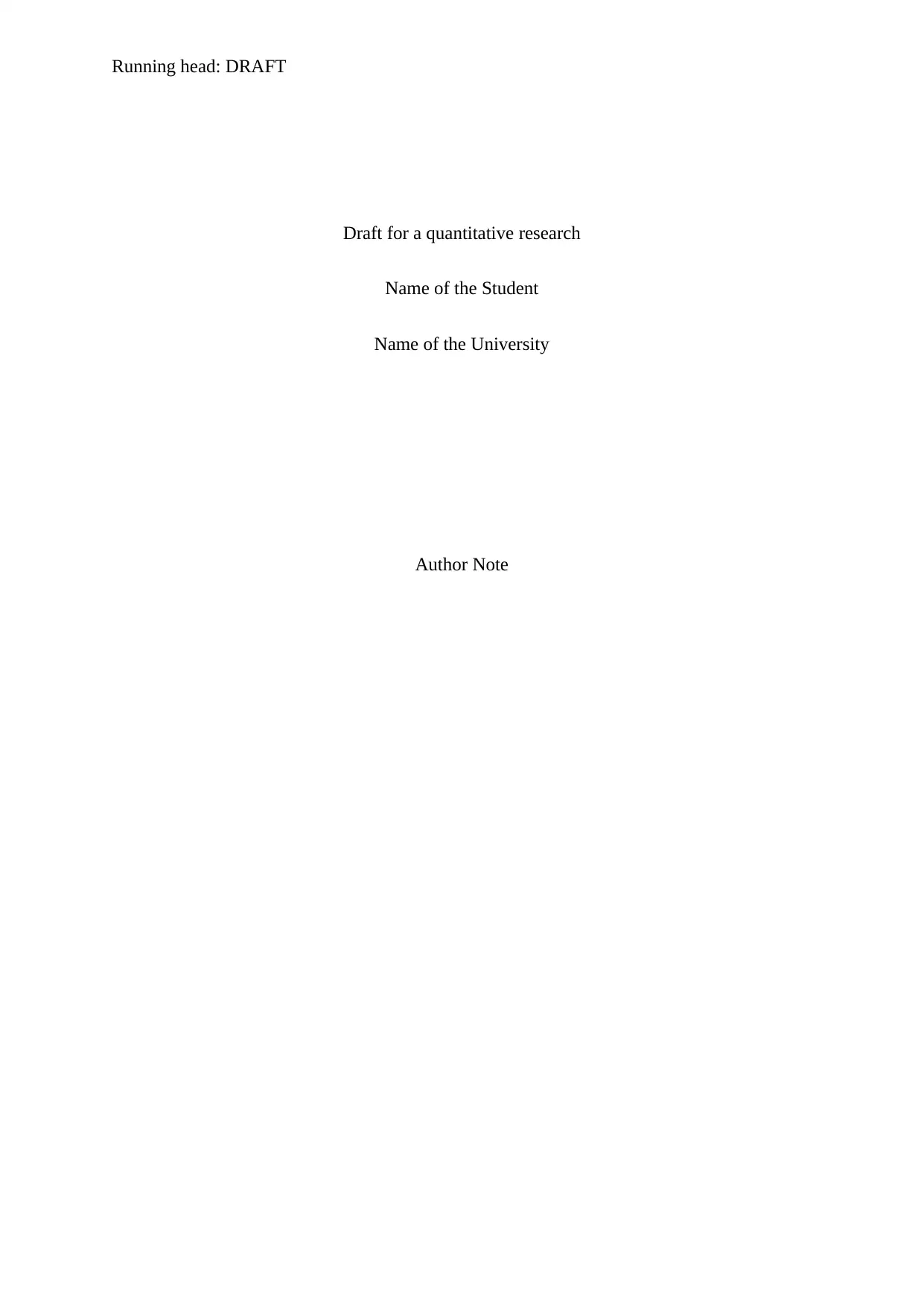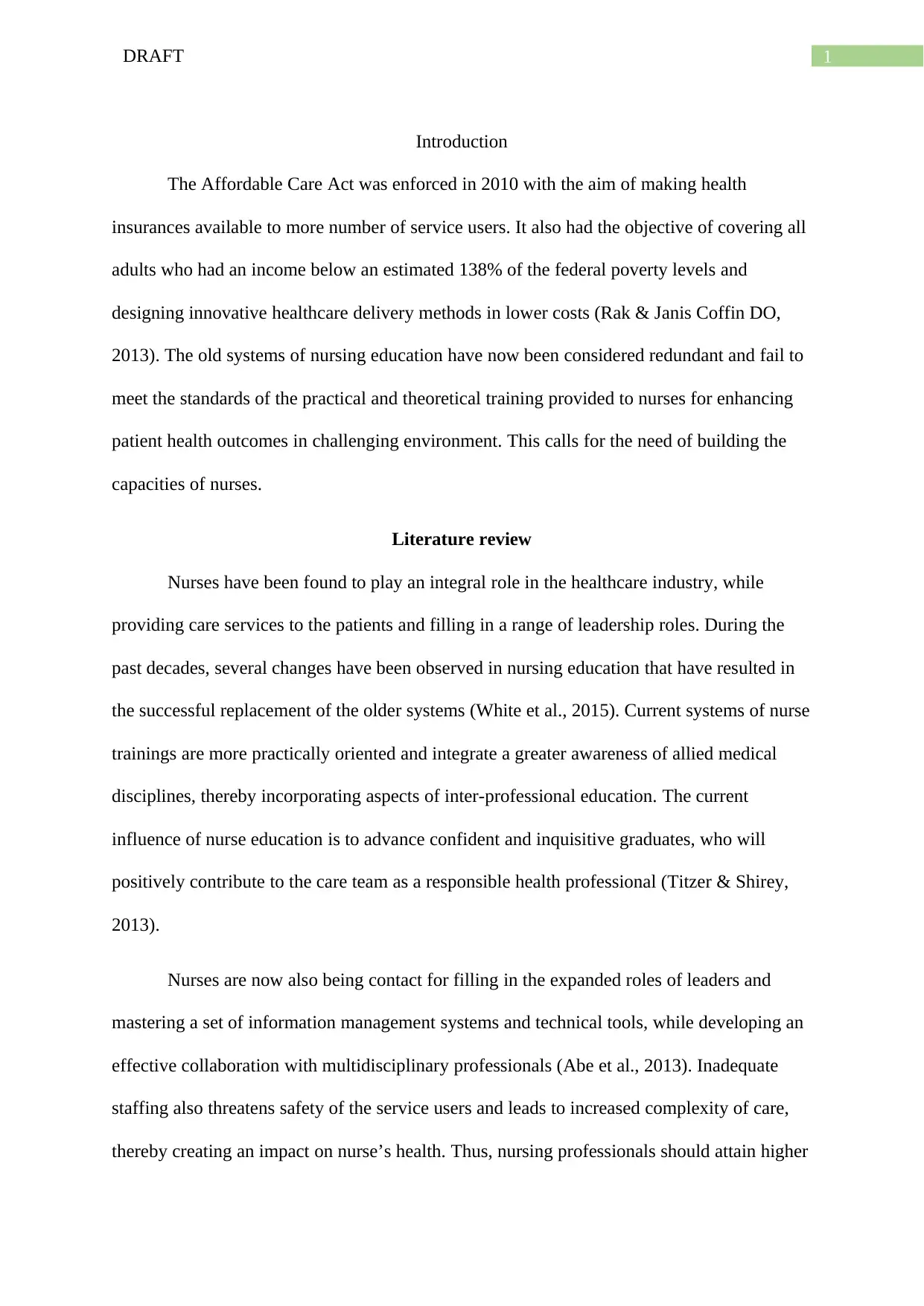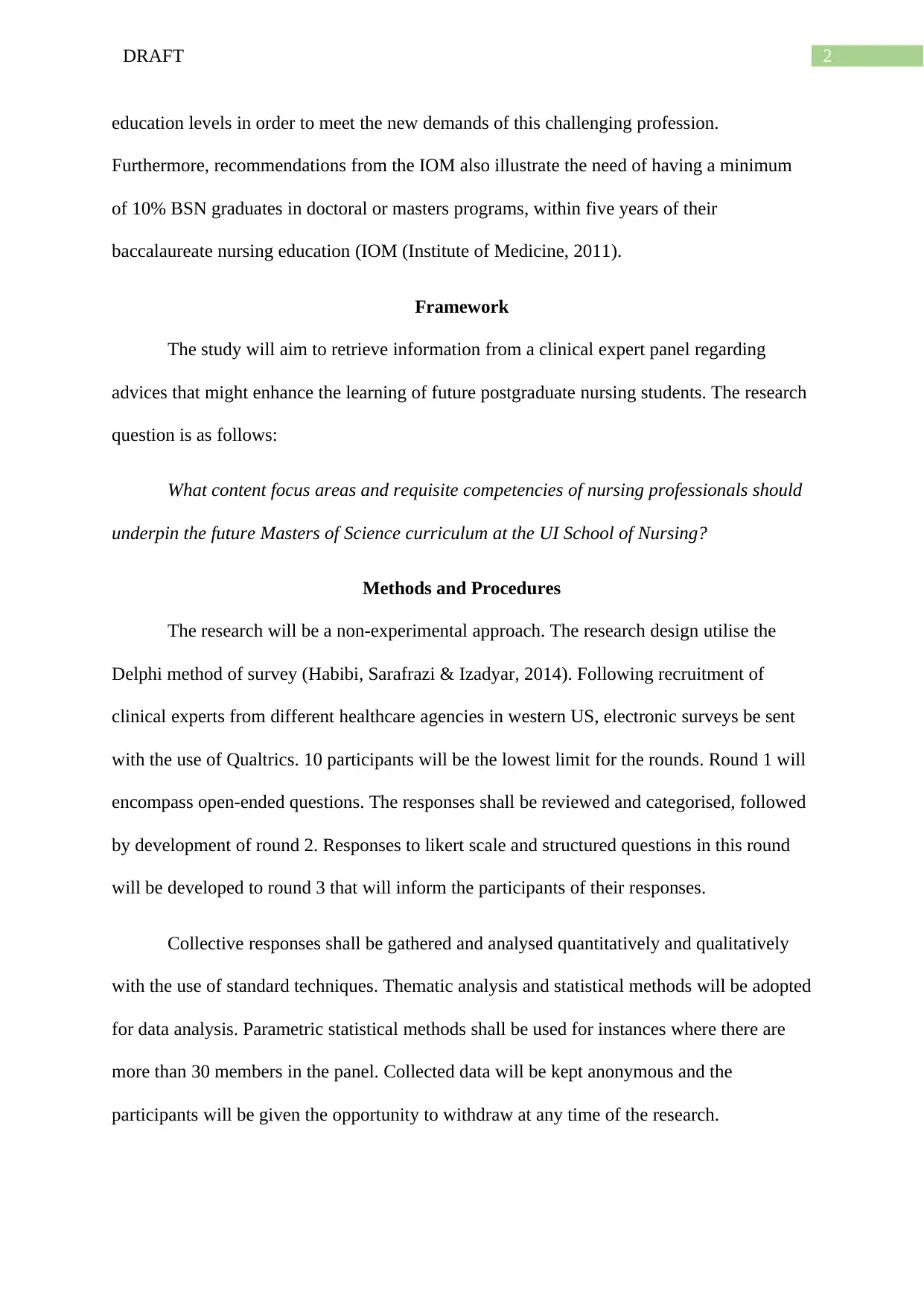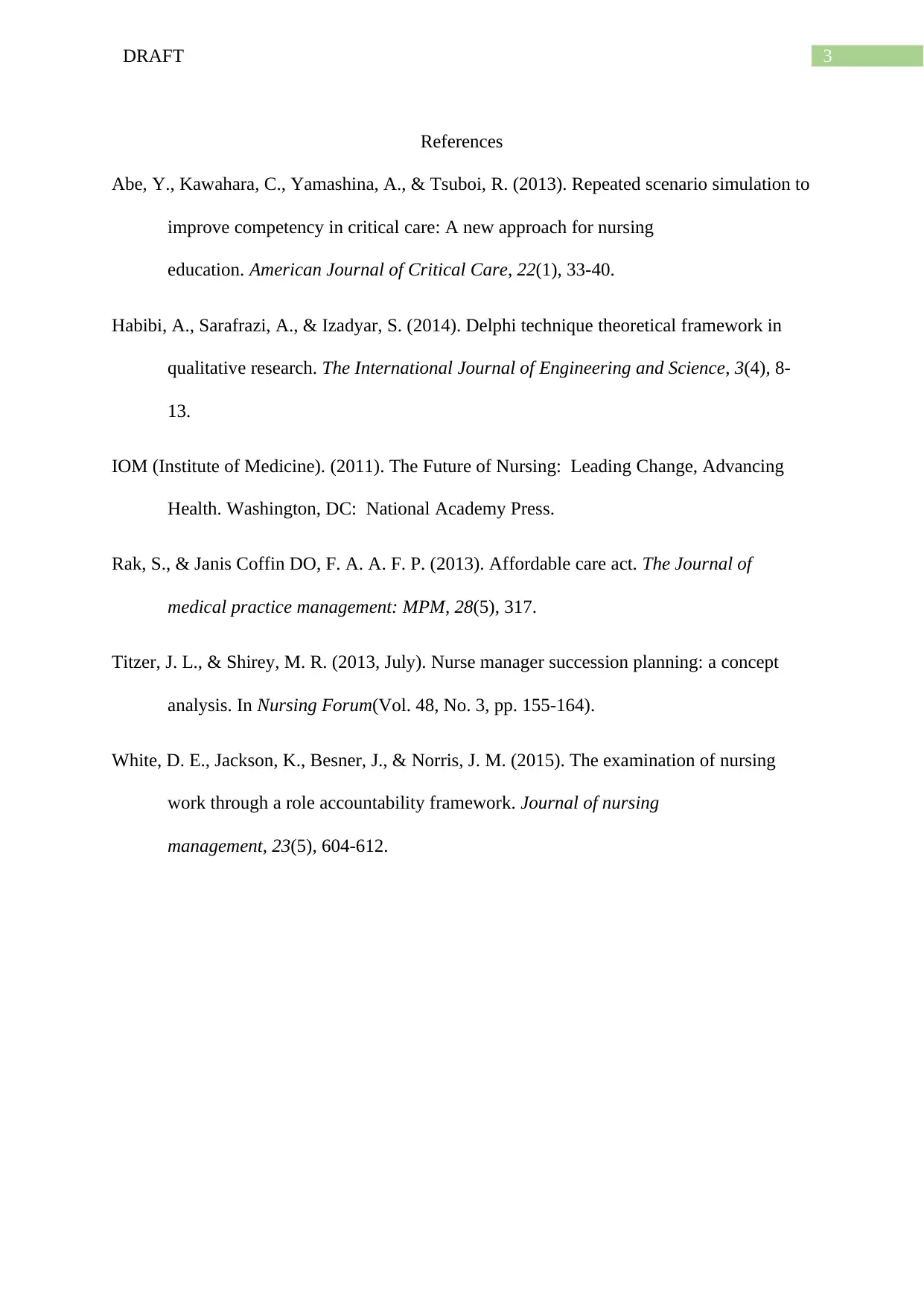Quantitative Research Draft: Nursing Education and Curriculum Design
VerifiedAdded on 2023/06/10
|4
|882
|253
Report
AI Summary
This report presents a draft of a quantitative research study focusing on the development of a Masters of Science curriculum at the UI School of Nursing. The research aims to gather insights from a clinical expert panel to identify key content areas and competencies essential for future postgraduate nursing students. The study utilizes a non-experimental approach, specifically the Delphi method, involving electronic surveys to collect data from clinical experts across different healthcare agencies. The research questions the essential content focus areas and requisite competencies of nursing professionals. The data analysis will involve both qualitative and quantitative techniques, including thematic analysis and statistical methods. The study acknowledges the importance of higher education levels for nurses to meet the demands of the profession and references relevant literature, including the Affordable Care Act and recommendations from the IOM regarding the need for BSN graduates in advanced programs. The research aims to contribute to the enhancement of nursing education and patient health outcomes.
1 out of 4











![[object Object]](/_next/static/media/star-bottom.7253800d.svg)